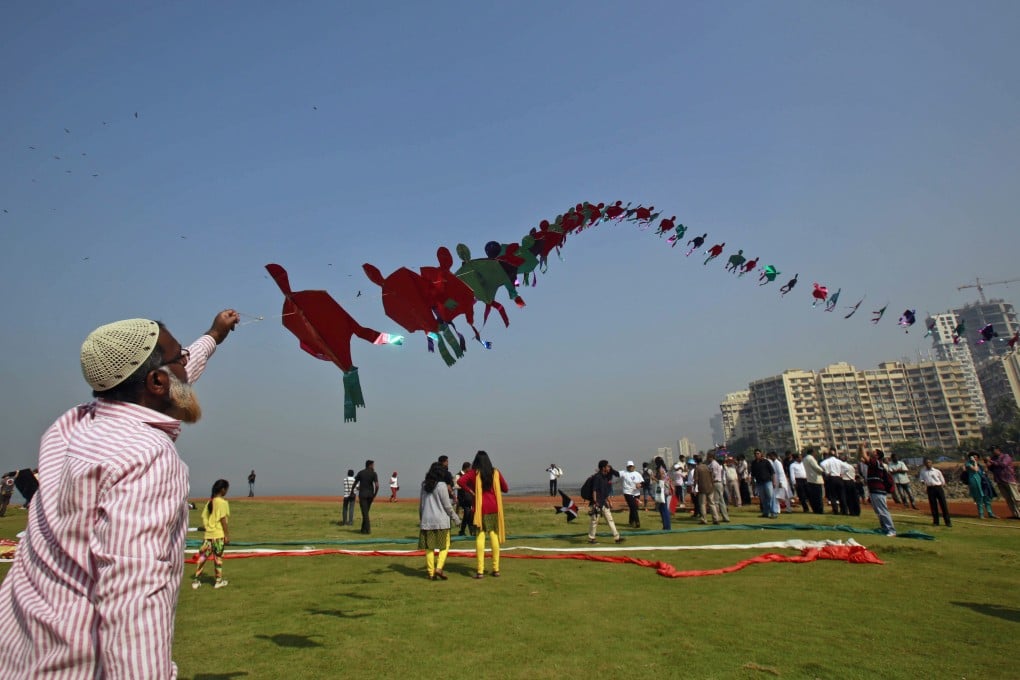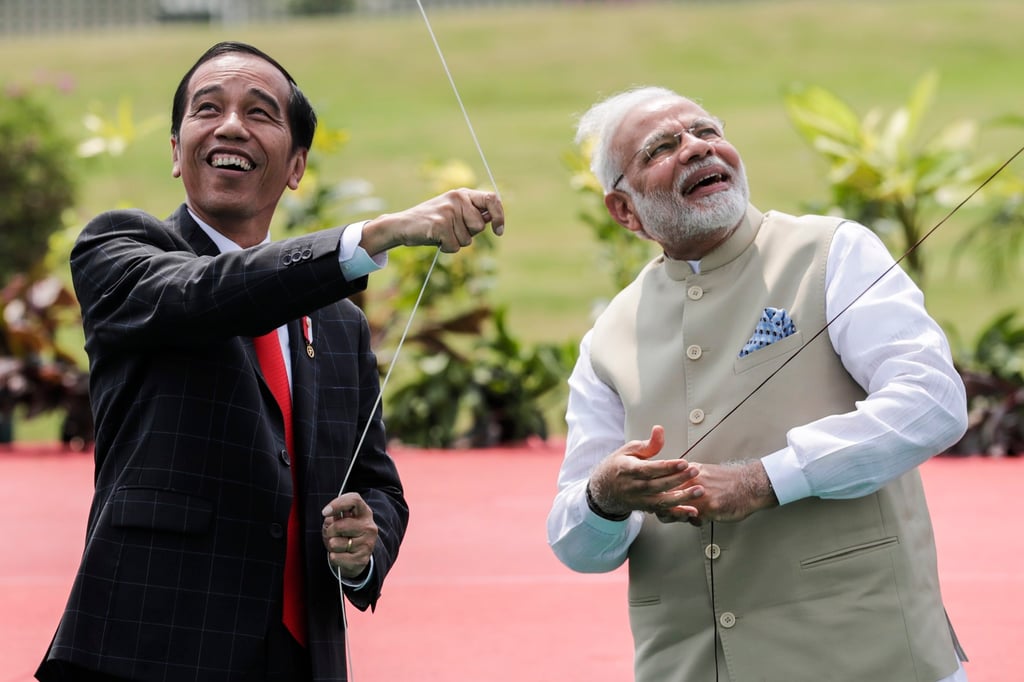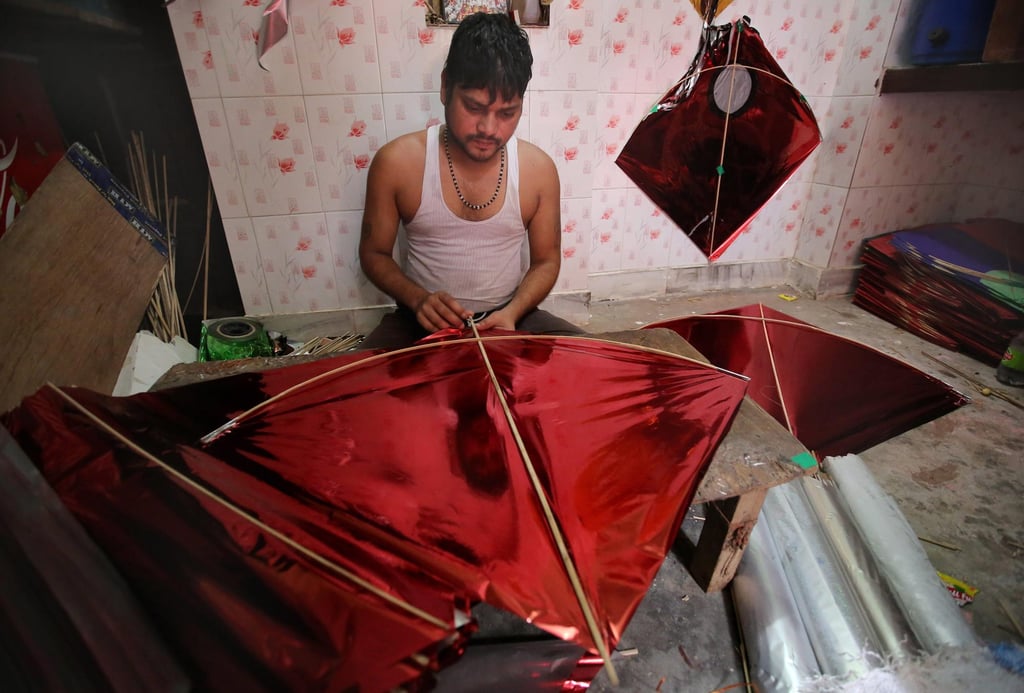As India prepares for 75th Independence Day, scooter riders and police brace for more lethal glass-covered kite strings
- Some victims garrotted by ‘invisible’ sharp kite strings although delivery driver recently fell in road, entangled; his skull was then crushed by a car
- Illegal glass or metal-covered strings – Chinese manja – help bring down rivals’ kites; this year kites are banned near to where Prime Minister Modi will make Independence Day anniversary speech

How Narendra Kumar, a young father of three, ended up dead on a New Delhi road, his skull crushed, is the sad and horrible tale of a deadly piece of ‘invisible’ string.
Kumar was on a late shift on August 7, delivering food on his scooter. Police say a kite string, coated in powdered glass, was hanging in the air and he failed to see it in the dark. It is thought that the more he tried to free himself from the razor-sharp cord, the more entangled he became. Eventually he fell onto the road, and a car ran over him.
Kumar’s death is not the first kite-string related one in India, which will celebrate its 75th anniversary of independence from Britain on August 15. A traditional and popular activity on the bank holiday is kite flying, particularly in the Muslim quarter known as Old Delhi.

The strings are called ‘manja’ across South Asia but in parts of India are mysteriously referred to as ‘Chinese manja’, the reason for the name unclear.
Serious kite fliers tie bandages on their hands to protect themselves but the sport has had numerous victims in recent years. Unsuspecting residents have had their throats cut and bled to death after coming into contact with invisible stray strings hanging in the air. Victims have mainly been scooter drivers, with some children riding pillion also killed.
